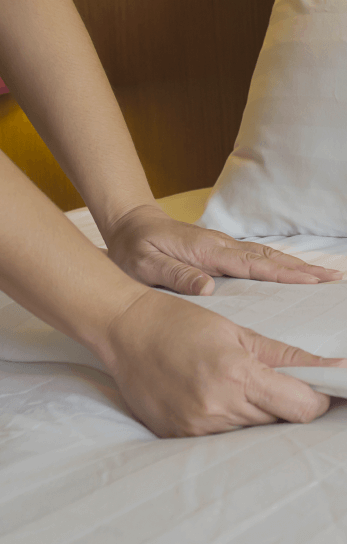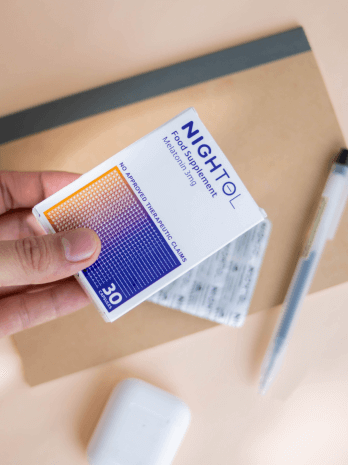Have you ever worked the night shift? Many of us know of call center agents and BPO workers as night shift workers but did you know that we have all sorts of essential workers who are up much earlier than the rest of us? They are our healthcare workers, public transport drivers, food servers, first responders like firefighters and police officers, and security personnel.
But powering through puyat on a regular basis also comes with drawbacks, one of which is Shift Work Disorder. Shift Work Disorder is common among workers who take on nonstandard work shifts—that is anytime before 7AM and after 6PM—and it can disrupt healthy sleep patterns which may lead to sleep disorders and serious illnesses especially when prolonged.
But we come bearing good news! There are inexpensive ways to get quality sleep for shift workers that aren’t just doable–they get easier with practice. Whether you’re a shift worker by choice or by circumstance, ahead are tips that can help with getting adequate sleep despite your unorthodox schedule. Hey, deserve na deserve mo ding matulog nang mahimbing.
1. Set up your bedroom and some boundaries.

Getting quality sleep in the day can be a pleasant experience with a few small but important changes in your room. Use blackout curtains or blinds on your windows to curb the amount of natural light coming in–this way, you can prep your eyes for rest and stay sleepy. Keep your room comfortably cool to help prevent the heat from interrupting your sleep. You can also listen to white noise whether it’s ambient music or just the whirring of an electric fan but if you prefer total silence, you can wear earplugs to bed to sleep peacefully.
As for boundaries, explain your schedule to people at home so that they can help avoid doing noisy activities. You can also agree that they can only wake you during emergencies, and no, Shopee and Lazada deliveries don’t count as emergencies. It can also help to lower your phone’s notification alerts or to put it in silent mode altogether, if you’re not on call. If you want to go the little extra mile, you can use lavender oil drops or spray on your linen to help you relax once your back hits the bed.
2. Stick to a simple routine that eases you into sleep.

Stepping out of the workplace after a night shift may feel like the sun is attacking you on all fronts–halos mawala na yung antok mo. Protect your eyes by wearing sunglasses and a hat during your commute. This also helps condition your mind for sleep since melatonin is produced by our body in the dark to signal sleep. Some shift workers prefer to stay awake for a few more hours so that they can sleep and wake closer to their shift while still getting enough rest. This allows them to observe a schedule similar to those who work 9 to 5. You may include in your routine a relaxing activity such as meditation or a shower to wind down and prepare for sleep. If you feel too tired to do anything really, just sit back and put your feet up. You can also wear an eye mask as you sleep, we hear that the silky ones feel great on the skin!
3. Go easy on your caffeine intake.

In short, easy lang sa kape! We love our coffee as much as the next person and we’re not going to tell you to stop drinking it. But, you need your caffeine intake in check if you want to sleep according to the schedule you just built. Just like people who work in the mornings, many of those who work nights like to drink their coffee at the beginning of their shift; some even double up on other caffeine sources such as soda to fight off sleepiness throughout the night. While this is the case for a lot of shift workers, it’s still recommended to not drink anymore of it three to four hours before bedtime to help your body ease into sleep faster after work.
4. Take a melatonin supplement

Our pineal gland releases melatonin, also known as the sleep hormone because it regulates our sleep-wake cycle, and it is produced in the body when it’s in the dark. However, there are some circumstances that can disrupt the production of melatonin such as jet lag, sleep disorders, and shift work. If you find it hard to sleep after working at night even when you already feel tired, you can consider taking affordable melatonin supplements thirty minutes before going to bed. According to the American Sleep of Medicine, melatonin supplements can help shift workers sleep during the day with relatively little side effects. Keep in mind though that melatonin supplements do not necessarily keep you alert while working at night so you might still have to count on caffeine to help you stay awake.
5. Remember, consistency is key.

It can be harder than it sounds but if you’re going to be on the night shift for a while, your body will need all the help to adjust to its new sleep-wake schedule. The Sleep Foundation recommends that you stick to the same sleep schedule even on your days off and weekends to help your body get accustomed to your shift while still getting enough rest. It’s also important that you consistently eat healthy meals on time to help keep big cravings at bay just as you’re about to go to sleep.
Give your sleep routine a boost without causing a dent on your wallet with Nightol, a food supplement made with pure melatonin. If you’re a shift worker, experiencing jet lag, or simply want to get quality sleep by tucking in early, you can take 1-2 Nightol capsules 45 minutes before bedtime to help you sleep. Nightol is FDA-approved and is safe for everyday use! Don’t forget–it’s still best to consult a doctor before taking any supplements or medication to help you sleep to ensure your safety and wellbeing.
